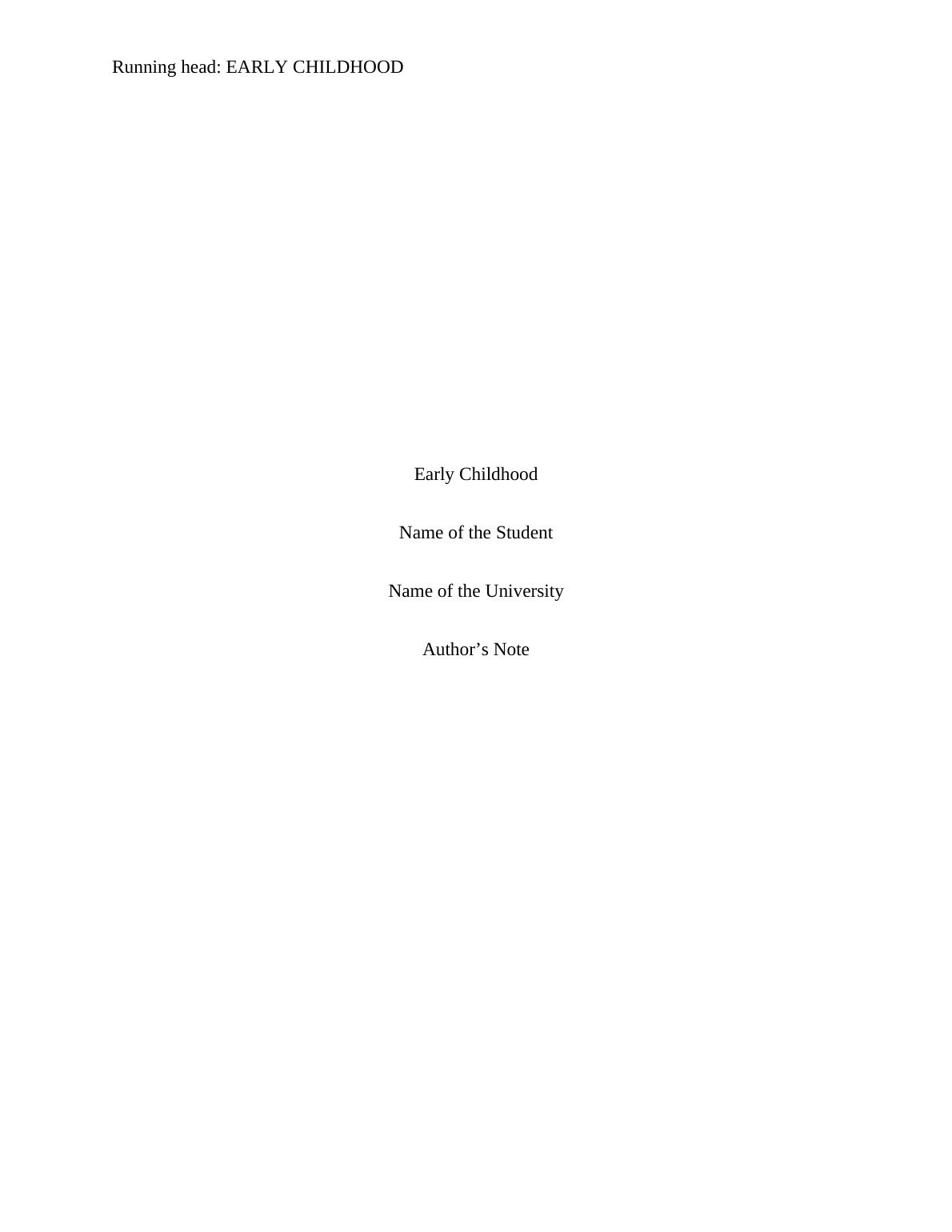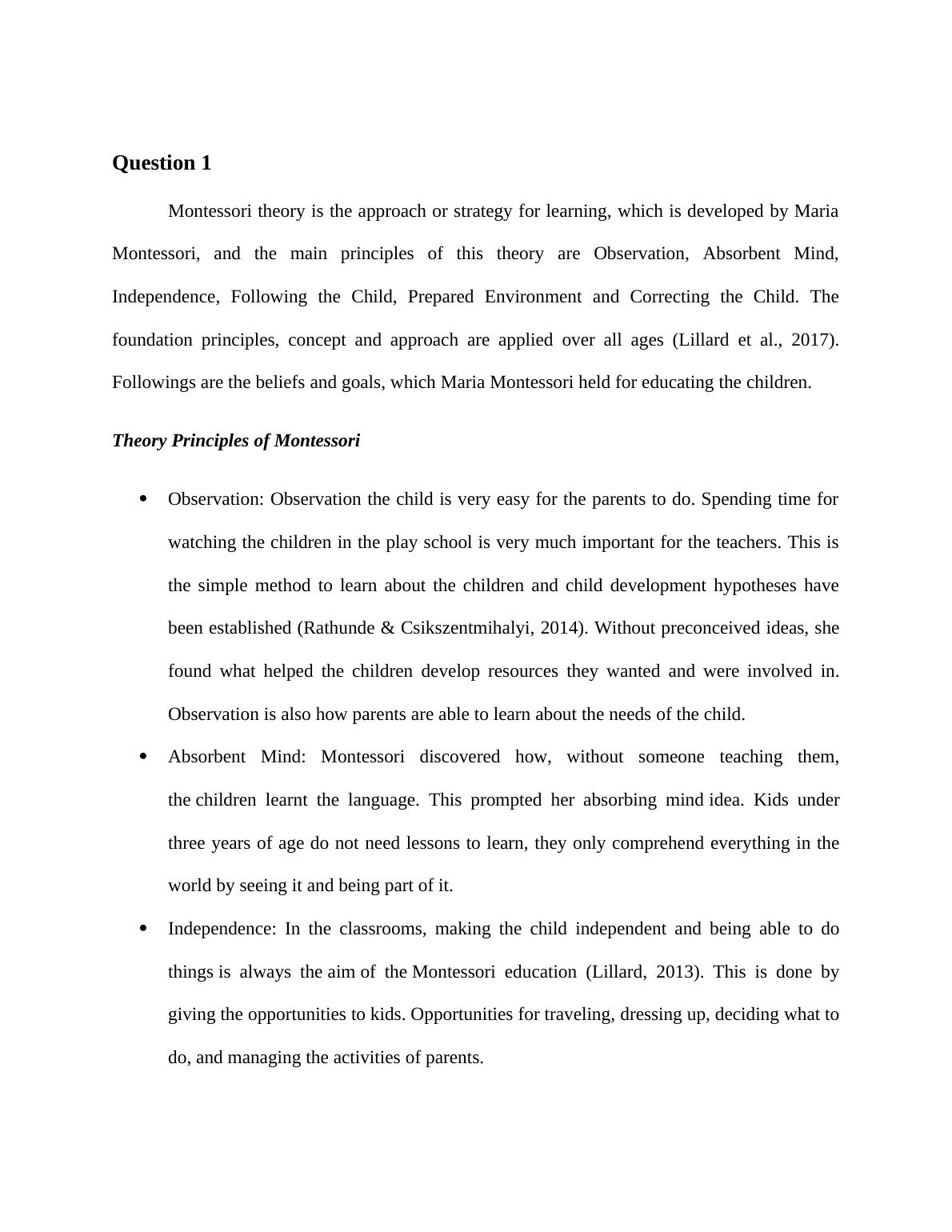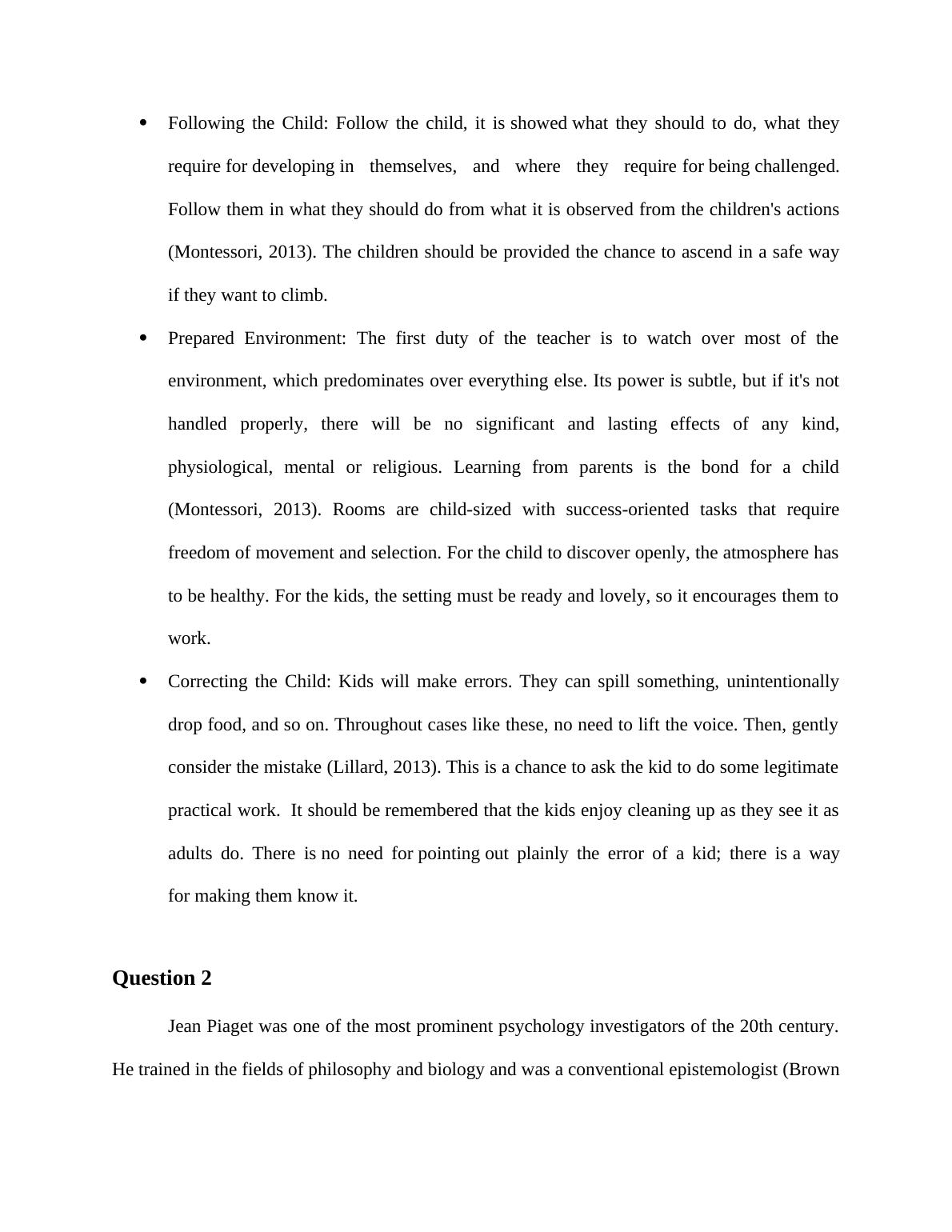Early Childhood Development Assignment Report
Choose one of the following theorists (Froebel, Pestalozzi, Montessori, Vygotsky) and explain how their theories apply to early childhood education.
8 Pages2181 Words47 Views
Added on 2022-09-09
Early Childhood Development Assignment Report
Choose one of the following theorists (Froebel, Pestalozzi, Montessori, Vygotsky) and explain how their theories apply to early childhood education.
Added on 2022-09-09
ShareRelated Documents
End of preview
Want to access all the pages? Upload your documents or become a member.
(Doc) Montessori education: a review of the evidence base
|10
|2781
|247
Early Childhood Learning
|6
|1155
|94
Personal Teaching Philosophy Assignment Report
|5
|1269
|35
Career Development And Systems Theory - PDF
|8
|2101
|77
(PDF) Montessori education: a review of the evidence base
|9
|2334
|54
Approaches to Pedagogy and Curriculum in Early Childhood
|10
|2377
|33



